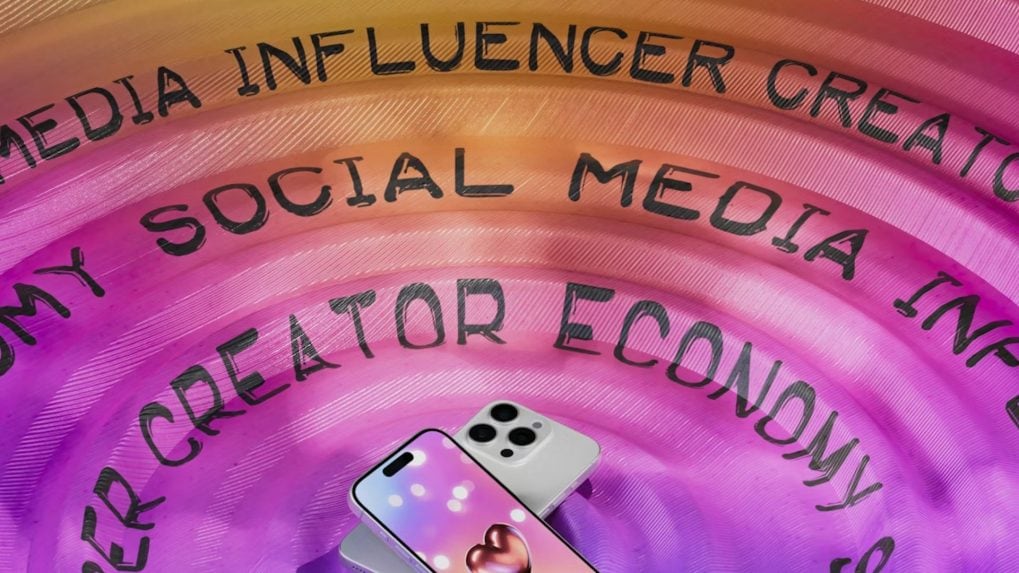Why brands are bringing influencer marketing in-house
As influencer marketing becomes central to brand strategy, companies are building in-house teams to gain control, cut costs, and deepen consumer connection.
ADVERTISEMENT
In a shift that signals the growing maturity of influencer marketing in India, companies across sectors, from consumer goods giants to nimble startups, are increasingly establishing dedicated in-house influencer marketing teams.
In 2024, Colgate-Palmolive appointed Aishwarya Gairola to lead its influencer marketing strategy. A year earlier, Unilever tapped Parmeshwari Bhumkar to oversee influencer efforts for its beauty and wellbeing portfolio. Their roles include developing best practices and managing campaigns from concept to execution.
The rise of such roles mirrors a broader trend. Altamash Khan, who began as an intern at eyewear brand Lenskart, now serves as the company’s senior executive for influencer marketing. Even traditional firms like Pune-based dairy producer Parag Milk Foods have built in-house influencer units.
The Roots of a Digital Evolution
India’s influencer marketing industry has undergone a remarkable transformation over the past decade. What began with trending hashtags on Twitter (now X) has expanded into a sophisticated ecosystem, buoyed by platforms like Instagram and TikTok, until the latter was banned in India in 2020. Instagram Reels quickly filled the vacuum, just as the COVID-19 pandemic halted traditional ad shoots and pushed brands to embrace influencer-driven content.
“In the post-pandemic world, influencer marketing has become foundational to sectors like fashion, tech, beauty, food, and FMCG,” said Kalyan Kumar, co-founder and CEO of KlugKlug, an influencer marketing platform. “Brand spending is now estimated between ₹4,000 to ₹6,000 crore annually.”
According to data from influencer marketing platform Qoruz, 92 percent of consumers trust recommendations from individuals over branded content—an insight that underscores why influencers now hold a central place in the marketing mix.
A Pyramid of Influence
The influencer landscape operates on a tiered model, explained Sudeep Subash, CEO of Big Bang Social and Chief Revenue Officer at Collective Artists Network. At the top sit celebrities, who offer reach and cultural cachet. Mid-tier and macro creators drive engagement and consideration, while micro and nano influencers deliver targeted, word-of-mouth authenticity within niche communities.
“Each layer serves a distinct purpose in the brand funnel,” said Subash.
Why Go In-House?
With the stakes higher than ever, more companies are internalizing influencer functions to achieve tighter control, reduce costs, and integrate marketing with business objectives.
“Agencies tend to work at a transactional level,” said KlugKlug’s Kumar. “But brands today are looking for deeper integration, strategy, alignment with brand values, and results-driven execution.”
Praanesh Bhuvaneswar, co-founder and CEO of Qoruz, added that the evolution of influencer marketing has made first-party data more valuable than ever. “Overreliance on agencies creates knowledge gaps. In-house teams allow brands to embed influencer programs into their CRM systems, loyalty platforms, and broader digital strategy.”
This strategic depth goes beyond talent matchmaking. Brands are now equipped with platforms that enable direct influencer scouting, negotiation, and campaign tracking, once the exclusive domain of agencies.
The Agency Advantage
Still, agencies remain relevant, especially for scale and cultural intelligence.
“Agencies can offer broader market insights, diverse creator pools, and real-time trend responsiveness that’s difficult to replicate internally,” Subash noted. “They’re plugged into the pulse of fast-moving platforms and consumer behaviors.”
Even brands with in-house capabilities acknowledge the strengths of their agency partners. A spokesperson for audio and wearables brand boAt said managing influencer campaigns internally enabled faster execution and deeper alignment. But agencies, they added, bring fresh perspectives and prevent content fatigue.
“Working with one brand can lead to repetition,” the spokesperson said. “Agencies working across verticals help inject creativity and novelty.”
A Balancing Act
The conversation, it seems, is no longer about whether to go in-house, but how much to internalize. Many experts advocate for a hybrid model. “Brands can retain strategic ownership, like defining objectives and campaign goals, while outsourcing content creation and logistics,” said Kumar. “This strikes a balance between consistency and agility.”
BoAt’s spokesperson echoed the sentiment: “Our internal team ensures brand consistency. But agencies give us access to exclusive talent and ensure smooth execution. The combination is more powerful than either alone.”
As influencer marketing becomes a central pillar in brand building, this hybrid approach may offer the best of both worlds, strategic alignment and creative dynamism.
And with consumer trust increasingly earned, not bought, brands will likely continue refining their influencer strategies, bringing more of the process home while still keeping a foot in the cultural current.
Read More: Honasa Consumer's Anuja Mishra on influencer marketing, customer expectations and more
Read More: Brands to focus on in-house teams to drive influencer marketing in India


